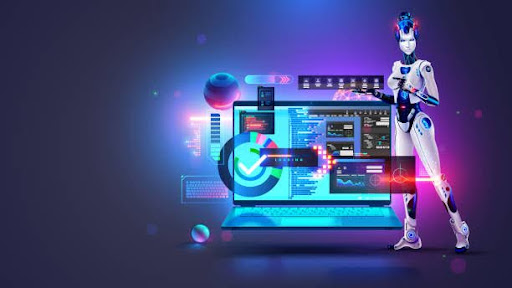Introduction
Artificial Intelligence (AI) has transitioned from science fiction to an unstoppable force reshaping industries, economies, and daily life. With rapid advancements in AI technology, we stand at the brink of the next great technological leap—one that promises to redefine human potential. From self-learning algorithms to autonomous robots, innovations in technology powered by AI are unlocking possibilities once deemed impossible. But what does this mean for society? Will AI drive unprecedented progress, or does it pose risks we are yet to fully understand? This article explores how AI is unleashing a new era of innovation and what it means for the future.
The Evolution of AI: From Concept to Reality
Artificial Intelligence is not a new concept—its foundations were laid in the mid-20th century. However, recent breakthroughs in computing power, big data, and machine learning have propelled AI into mainstream adoption. Key milestones include:
- Machine Learning (ML): AI systems that learn from data without explicit programming.
- Deep Learning: Neural networks that mimic the human brain, enabling image and speech recognition.
- Generative AI: Models like ChatGPT and DALL-E that create human-like text, images, and music.
These advancements have turned AI from a theoretical idea into a transformative technology influencing every sector.
How AI Technology is Reshaping Industries
1. Healthcare: Saving Lives with AI
AI in medicine is revolutionizing through:
- Early Disease Detection (AI analyzes medical scans faster and more accurately than humans).
- Robot-assisted surgery (Precision operations with minimal invasiveness).
- Personalized Treatment Plans (AI tailors therapies based on genetic data).
2. Transportation: The Age of Autonomous Vehicles
Self-driving cars (Tesla, Waymo) and AI-powered traffic systems are reducing accidents and optimizing travel efficiency.
3. Finance: Smarter and Safer Transactions
- Fraud Detection (AI spots suspicious transactions in real-time).
- Algorithmic Trading (AI predicts market trends in milliseconds).
- AI Chatbots (Handling customer inquiries 24/7).
4. Manufacturing: The Rise of Smart Factories
AI-driven automation enhances production efficiency with:
- Predictive Maintenance (Machines alert before breakdowns).
- Quality Control (AI detects defects in real-time).
Groundbreaking Innovations in AI Technology
1. Generative AI: Redefining Creativity
Tools like MidJourney, ChatGPT, and Deepfake allow anyone to generate art, music, and even realistic videos—raising both excitement and ethical concerns.
2. Quantum AI: The Next Frontier
Combining quantum computing with AI could solve complex problems (like drug discovery and climate modeling) in seconds.
3. AI in Space Exploration
NASA and SpaceX use AI for:
- Autonomous spacecraft navigation.
- Analyzing vast cosmic data.
- Predicting equipment failures before they occur.
4. AI-Powered Smart Cities
From traffic management to energy optimization, AI is making cities more efficient and sustainable.
The Ethical Dilemmas of AI Unleashed
While AI offers immense benefits, it also presents challenges:
1. Job Displacement vs. New Opportunities
- Threat: Automation may replace jobs in manufacturing, customer service, and logistics.
- Opportunity: AI will create new roles in AI ethics, programming, and cybersecurity.
2. Bias in AI Systems
If trained on biased data, AI can reinforce discrimination in hiring, policing, and lending.
3. Privacy Concerns
Facial recognition and data mining raise questions about surveillance and personal freedom.
4. The Existential Risk: Superintelligent AI
Could AI surpass human control? Experts debate whether AGI (Artificial General Intelligence) will help or harm humanity.
The Future: What’s Next for AI?
1. Human-AI Collaboration
AI won’t replace humans—it will augment our abilities, making us more efficient and creative.
2. AI in Education
Personalized AI tutors will adapt to each student’s learning style, revolutionizing education.
3. AI for Global Challenges
From climate change to disease outbreaks, AI can help solve humanity’s biggest crises.
4. The Road to Artificial General Intelligence (AGI)
While today’s AI excels at specific tasks, AGI—machines with human-like reasoning—could be the ultimate leap.
Conclusion
AI is not just another technological advancement—it is a paradigm shift, unleashing possibilities beyond imagination. As AI technology continues to evolve, society must embrace innovations in technology while addressing ethical concerns. The future will be shaped by how we harness AI—ensuring it serves humanity’s best interests.
The next great technological leap is here. The question is: Are we ready?





